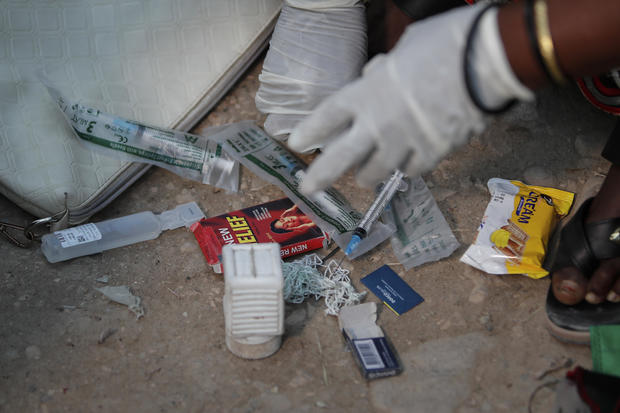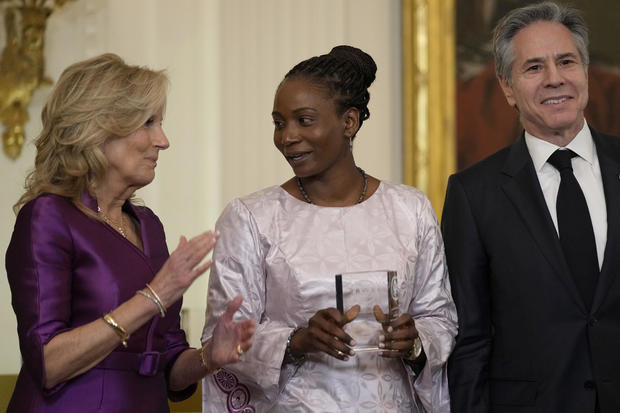Gambia may become first nation to reverse female genital mutilation ban
Errekunda, Gambia — Lawmakers in Gambia will vote Monday on legislation that seeks to repeal a ban on female genital mutilation, or FGM, which would make the West African nation the first country anywhere to make that reversal. The procedure, which also has been called female genital cutting, includes the partial or full removal of external genitalia, often by traditional community practitioners with tools such as razor blades or at times by health workers.
Often performed on young girls, the procedure is incorrectly believed to control a woman's sexuality and can cause serious bleeding and death. It remains a widespread practice in parts of Africa.
Jaha Dukureh, the founder of Safe Hands for Girls, a local group that aims to end the practice, told The Associated Press she worried that other laws safeguarding women's rights could be repealed next. Dukureh underwent the procedure and watched her sister bleed to death.
"If they succeed with this repeal, we know that they might come after the child marriage law and even the domestic violence law. This is not about religion but the cycle of controlling women and their bodies," she said. The United Nations has estimated that more than half of women and girls ages 15 to 49 in Gambia have undergone the procedure.
The bill is backed by religious conservatives in the largely Muslim nation of less than 3 million people. Its text says that "it seeks to uphold religious purity and safeguard cultural norms and values." The country's top Islamic body has called the practice "one of the virtues of Islam."
Gambia's former leader, Yahya Jammeh, banned the practice in 2015 in a surprise to activists and with no public explanation. Since the law took effect, enforcement has been weak, with only two cases prosecuted.
On Monday, a crowd of men and women gathered outside Gambia's parliament, some carrying signs protesting the bill. Police in riot gear held them back.
Gambia's parliament of 58 lawmakers includes five women. If the bill passes on Monday's second reading, it is expected to pass a third and final review before President Adama Barrow is expected to sign it into law.
The United States has supported activists who are trying to stop the practice. Earlier this month, it honored Gambian activist Fatou Baldeh at the White House with an International Women of Courage Award.
The U.S. embassy in Gambia declined to say whether any high-level U.S. official in Washington had reached out to Gambian leaders over the bill. In its emailed statement, Geeta Rao Gupta, the top U.S. envoy for global women's issues, called it "incredibly important" to listen to the voices of survivors like Baldeh.
The chairperson of the local Center for Women's Rights and Leadership, Fatou Jagne Senghore said the bill is "aimed at curtailing women's rights and reversing the little progress made in recent years."
The president of the local Female Lawyers Association, Anna Njie, said the practice "has been proven to cause harm through medical evidence."
UNICEF said earlier this month that some 30 million women globally have undergone the procedure in the past eight years, most of them in Africa but some in Asia and the Middle East.
More than 80 countries have laws prohibiting the procedure or allowing it to be prosecuted, according to a World Bank study cited this year by a United Nations Population Fund Q&A published earlier this year. They include South Africa, Iran, India and Ethiopia.
"No religious text promotes or condones female genital mutilation," the UNFPA report says, adding there is no benefit to the procedure.
Girls are subjected to the procedure at ages ranging from infancy to adolescence. Long term, it can lead to urinary tract infections, menstrual problems, pain, decreased sexual satisfaction and childbirth complications as well as depression, low self-esteem and post-traumatic stress disorder.





